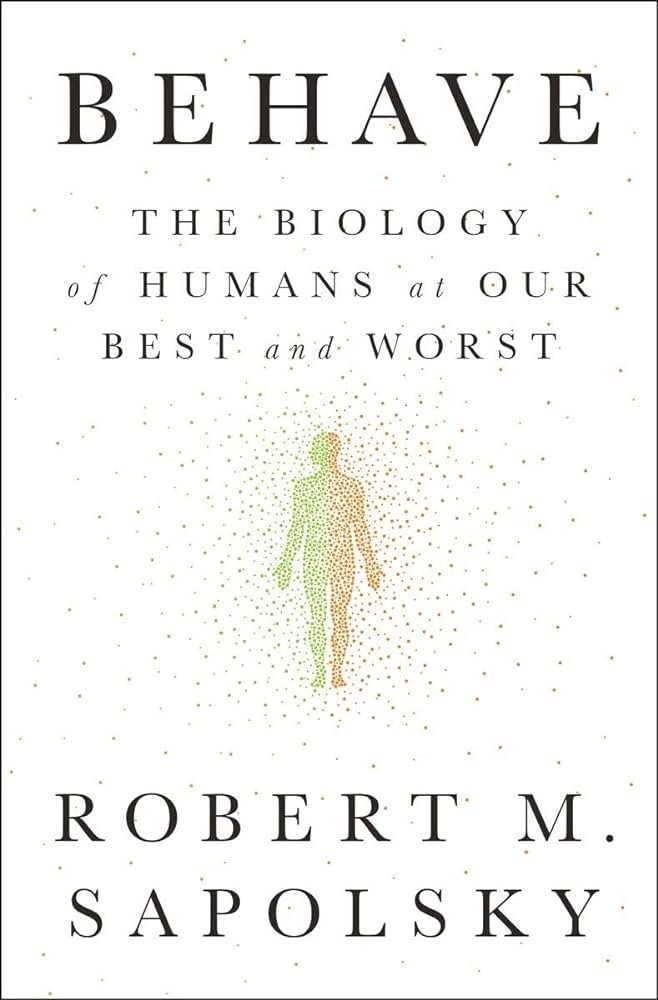Behave
Behave: The Biology of Humans at Our Best and Worst
Robert M. Sapolsky
What it’s about
The title is a perfect description of what the book is about. In the book, Sapolsky makes the case, and presents the evidence from his knowledge as Stanford professor of biology, of neurology, and of neurosurgery, that humans are simply walking chemical reactions. Our behaviors are the result of these chemical reactions, rather than being something over which we have control. In other words, he makes the case that humans have no free will. As he states, “We are nothing more or less than the cumulative biological and environmental luck, over which we had no control, that has brought us to any moment,” he writes. “There’s not a single crack of daylight to shoehorn in free will.” (that’s not in the book, I found that quote here: https://stanfordmag.org/contents/as-if-you-had-a-choice).
Why I like it
Once again, this provides a way of thinking about humans and human behavior which is very much aligned with, though not directly supportive of, my view of the role of finance in evolution. As the reader is likely aware, in a world in which the driving force of resource allocation is to sustain the ongoing existence of the species/life form (not the individual element of the life form, but rather the holistic life form which occupies the planet and of which each other life form is a component), it only makes sense that all resource allocations must honor the requirement that the expected return exceeds the opportunity cost of the resources being deployed, from the perspective of the fully diversified portfolio. In our book, The Blue Line Imperative, we refer to this as the imperative to create value. In that view, it would be illogical to expect that humans would truly have free will to do anything other than create value (though their behavior will reflect their limited scope and ability, which may result in value destruction, but which then will be reflected in the gradual decline and eventual extinction of the organization, organism, or species). Our statement that value creation is a biological and evolutionary imperative is strongly aligned with Sapolsky’s conclusion that human’s have no free will.
In Behave, Sapolsky demonstrates the crucial role of context in shaping behavior. He repeatedly stresses how environmental and social contexts can dramatically alter how genes are expressed and how the brain functions.
In order from most recent to most distant, he emphasizes the roles of neurobiological factors occurring seconds before an action, environmental stimuli in the immediate context, hormonal influences over hours to days, long-term neural plasticity and learning, developmental factors from adolescence and childhood, genetic predispositions, and cultural and evolutionary forces.

